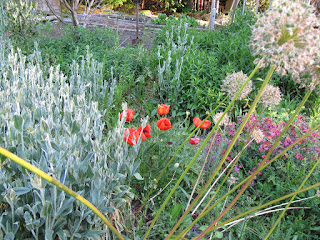Hope and optimism requires our attention to the current state of affairs. The dark side of power. That is, we need to look at the events that normally disturb the comfortable and lead the disturbed to despair and pessimism. We need to address this relationship to our world, our place within it and find a way of being that challenges injustice.
Ish Teilheimer of Straight Goods, reporting on a study that reveals a psychological difference between rich and poor (indicating that the rich don't see a need to help others, whereas the poor understand that they depend on mutual support) goes on to say "It's good to be loving, hopeful, and optimistic, but it's also important to point out that many of the bad things happening to people today are happening because some very wealthy people wanted things that way."
Wealth is power, and those who have power-over sometimes feel more secure by creating systems that make it very difficult or impossible for the masses to gain a healthy standard of living.
"The export of good jobs to sweatshop countries, for instance, was their idea. It's not unfair or overly negative to ask about new ideas in politics and government "Does this help everyone or just the rich?" and to consistently expose the shameless voices of wealthy self-interest."
History is full of examples of how brutal some are willing to be in order to maintain power in their zero-sum game. It was wealthy interests who supported the Nazi's murder of millions of Jews, gypsies and others, causing a war across Europe that destroyed hope and optimism for most. It was wealthy interests that plummeted the lives of Africans into despair and alienation during apartheid. It is wealthy interests that prop up despotic military governments in the Middle East and Asia.
It is wealthy interests that have destroyed the most powerful nation in the world by creating a dysfunctional hysteria among its citizens. Michael Moore in his 2003 Academy Award acceptance speech said "We like non-fiction, yet we live in fictitious times. We live in a time where we have fictitious election results that elect a fictitious president. We live in a time where we have a man sending us to war for fictitious reasons."
For expressing his opinion he received incredible harrassment and publicly televised death threats.
America, the self-promoted defender of democracy and human rights is currently being crippled by an old strategy - divide and conquer and divide, divide, divide.
So it's apparent that the atrocities that have become familiar in our collective sub-conscious are not caused by the masses as much as they are designed and organized by a powerful few for their own benefit, not ours. However, they have been enabled by a majority who have kept silent for fear of being punished, or have given up on their own perceptions for fear of gazing into the monster.
The trouble with this 'analysis' is that it leaves us feeling powerless, in despair, pessimistic, putting us into the blaming camp of us and them. The observation itself removes any inspiration to respond by anything more than apathy.
While facing up to the fact that most of the globe's economic interests have been gathered into a very small gated community, leaving the masses without much to hope for, we need to invest in something else and rebuild the world by the natures we possess, that have not been corporatized: to witness change as it unfolds, wherever it unfolds, and ask ourselves how we can influence that change.
Hope and optimism without effort may be naive, but getting our selves engaged in the process of evolution is hard work. Hope and optimism ask us to invest in them, they don't promise us happy endings. Hope and optimism need us to be honest with ourselves and one another. Hope and optimism rely on our search for truth and not just the many generalizations trotted out by institutions and heresay. When it comes to the truth of our lives and our future, even statistics and science need not stop our questioning.
The future we are destined to endure depends upon what we feel, and how we interrogate our feeling with thinking, and how that guides what we say and what we do, and the societies we build from character and vision.





No comments:
Post a Comment